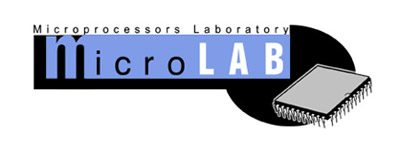
Vasileios Leon holds a Ph.D. in Digital IC Design & Embedded Computing from the National Technical University of Athens and a M.Eng. in Computer Engineering from the University of Patras. He is an experienced engineer, specializing in computer hardware & architecture, digital ICs, embedded systems, and space avionics. He has 10+ years of experience in R&D and system design for the Computing, Aerospace and Defense sectors, and a proven track record of contributions in both industry and academia with the role of developer, researcher, and systems engineer.
During his collaboration with MicroLab, he worked on EU Horizon projects and activities of the European Space Agency (QUEENS1/QUEENS2/QUEENS3, LEOTOME, HPCB, CAIRS21). He has published 30+ scientific papers in high-ranked international journals and conferences (IEEE, ACM, IET, Elsevier, Springer), which have gathered 750+ citations. He has also served as a teaching assistant in undergraduate courses (“Microprocessors”, “Digital VLSI Systems”, “Introduction to VLSI”), as well as he has provided assistance and guidance in several undergraduate diploma theses.
-
Design Space Exploration on High-Order QAM Demodulation Circuits: Algorithms, Arithmetic and Approximation Techniques
Electronics -
Walking through the Energy-Error Pareto Frontier of Approximate Multipliers
IEEE Micro DOI: 10.1109/MM.2018.043191124 -
Energy-efficient VLSI implementation of multipliers with double LSB operands
IET Circuits, Devices and Systems, 2019, DOI: 10.1049/iet-cds.2018.5039 -
Approximate Hybrid High Radix Encoding for Energy-Efficient Inexact Multipliers
IEEE Transactions On Very Large Scale Integration (VLSI) Systems, 26 (3), 2018 DOI: 10.1109/TVLSI.2017.2767858
Journals
-
ApproxQAM: High-Order QAM Demodulation Circuits with Approximate Arithmetic
2021 10th International Conference on Modern Circuits and Systems Technologies (MOCAST) -
Efficient support vector machines implementation on Intel/Movidius Myriad 2
2018 7th International Conference on Modern Circuits and Systems Technologies, MOCAST 2018 DOI: 10.1109/MOCAST.2018.8376630 -
- Konstantinos Maragos ,
- Vasileios Leon ,
- George Lentaris ,
- Dimitrios Soudris ,
- David Gonzalez-Arjona ,
- R. Domingo ,
- A. Pastor ,
- D. M. Codinachs and
- I. Conway
Evaluation Methodology and Reconfiguration Tests on the New European NG-MEDIUM FPGA
2018 NASA/ESA Conference on Adaptive Hardware and Systems, AHS 2018, DOI: 10.1109/AHS.2018.8541492 -
- S. Mouselinos ,
- Vasileios Leon ,
- Sotirios Xydis ,
- Dimitrios Soudris and
- Kiamal Pekmestzi
TF2FPGA: A Framework for Projecting and Accelerating Tensorflow CNNs on FPGA Platforms
2019 8th International Conference on Modern Circuits and Systems Technologies, MOCAST 2019, DOI: 10.1109/MOCAST.2019.8741940 -
- Vasileios Leon ,
- K. Asimakopoulos ,
- Sotirios Xydis ,
- Dimitrios Soudris and
- Kiamal Pekmestzi
Cooperative arithmetic-aware approximation techniques for energy-efficient multipliers
Proceedings - Design Automation Conference, 2019, DOI: 10.1145/3316781.3317793 -
- George Lentaris ,
- G. Chatzitsompanis ,
- Vasileios Leon ,
- Kiamal Pekmestzi and
- Dimitrios Soudris
Combining arithmetic approximation techniques for improved CNN circuit design
ICECS 2020 - 27th IEEE International Conference on Electronics, Circuits and Systems, Proceedings, DOI: 10.1109/ICECS49266.2020.9294869
Conferences
-
Implementation of Approximate Convolutional Filters and Floating-Point Components for CNN Applications
Academic Advisors: Kiamal Pekmestzi and Vasileios LeonBrief: PDF -
Customized Redundancy Schemes for Improved Fault-Tolerance of FPGAs in Space Applications
Brief: PDF -
Application of Approximate Computing Techniques on the NVIDIA Deep Learning Accelerator (NVDLA)
Brief: PDF
-
Implementation of Approximate Convolutional Filters and Floating-Point Components for CNN Applications
Academic Advisors: Kiamal Pekmestzi and Vasileios LeonBrief: PDF -
Customized Redundancy Schemes for Improved Fault-Tolerance of FPGAs in Space Applications
Brief: PDF -
Application of Approximate Computing Techniques on the NVIDIA Deep Learning Accelerator (NVDLA)
Brief: PDF

